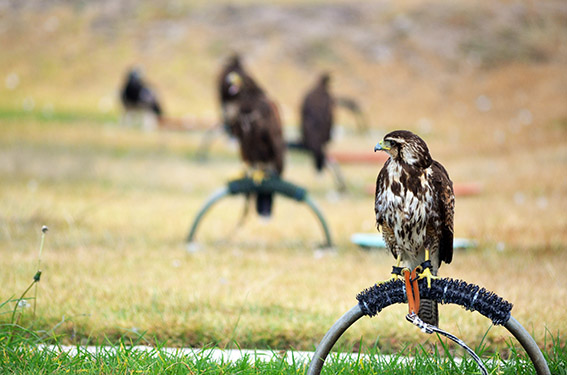Faunaetus celebrates 10 years managingresponsibly wildlife at the Quito airport

We celebrate a decade of extraordinary contributions by Faunaetus in wildlife management at the Quito airport, as well as in the harmonious coexistence between the airport operation and wildlife.
We remember the arrival of Faunaetus in 2013, when the operation of the new Quito International airport began and the need to work responsibly with the surrounding fauna. We came from an airport in an urban area to one located in a totally different environment in the middle of terrestrial fauna and birds. Due to this, the best and most effective method to control the fauna was carefully analyzed according to the kind of animals that we would find in the airport area and its surroundings.
“Fortunately, among other specialized teams that applied, we met Faunaetus, the company that best suited the needs, with a team of four highly qualified people,” says Gabriela Landázuri, EHS manager of Quiport, who participated in the design of the fauna control model. Ruth Muñiz, who came from Spain and has a PhD in Biology, and an expert in birds of prey, Paúl Tufiño who has a master’s degree in Biology, and two falconers, one of them a biologist and the other a zootechnician, formed the ideal team to begin this delicate task and carry out the corresponding analyzes to adapt their methods to the needs of the airport. Thus, it was decided that the best alternative was to use falconry techniques, together with other activities to reduce the risk of fauna in airport operations.
At the beginning, Faunaetus brought 2 saker falcons and 6 Harris eagles from Germany, along with a border collie dog from Colombia. These animals, after being trained in musculature and adaptability to the environment, began their service together with a labrador dog that was in the country. In just two months, Faunaetus managed to implement a complete service that met the wildlife control objectives in the airport.
Birds of prey make flights to mark territory and prevent other species of birds from approaching areas where they represent a risk for the operation of aircraft, while dogs are in charge of turtle doves and other birds that perch on the ground, as well as terrestrial fauna that may approach sensitive areas of the airport. Over time, more birds and dogs were included in the team.
Through exhaustive analysis and practical experiences, Faunaetus and the Quiport EHS Department managed to change the initial objective of fauna control to more sustainable management. It was identified that certain species of birds do not represent a risk to airport operations and, therefore, measures were implemented to allow their permanence at the airport, of course, with regular controls and monitoring.
This initiative has led to a respectful coexistence between birds and airport operations, a unique achievement in the industry where it is generally sought to avoid the presence of birds in the vicinity of airports as they represent a risk in the operation.
Currently, the Quito airport has a team of 6 specialists who manage the fauna with the help of 10 Harris eagles, 3 peregrine falcons, 2 saker falcons and 4 border collie dogs, all contributing effectively to security and safety. responsible management of fauna in our environment.
We congratulate and appreciate the service and progress that Faunaetus has had during these 10 years!
